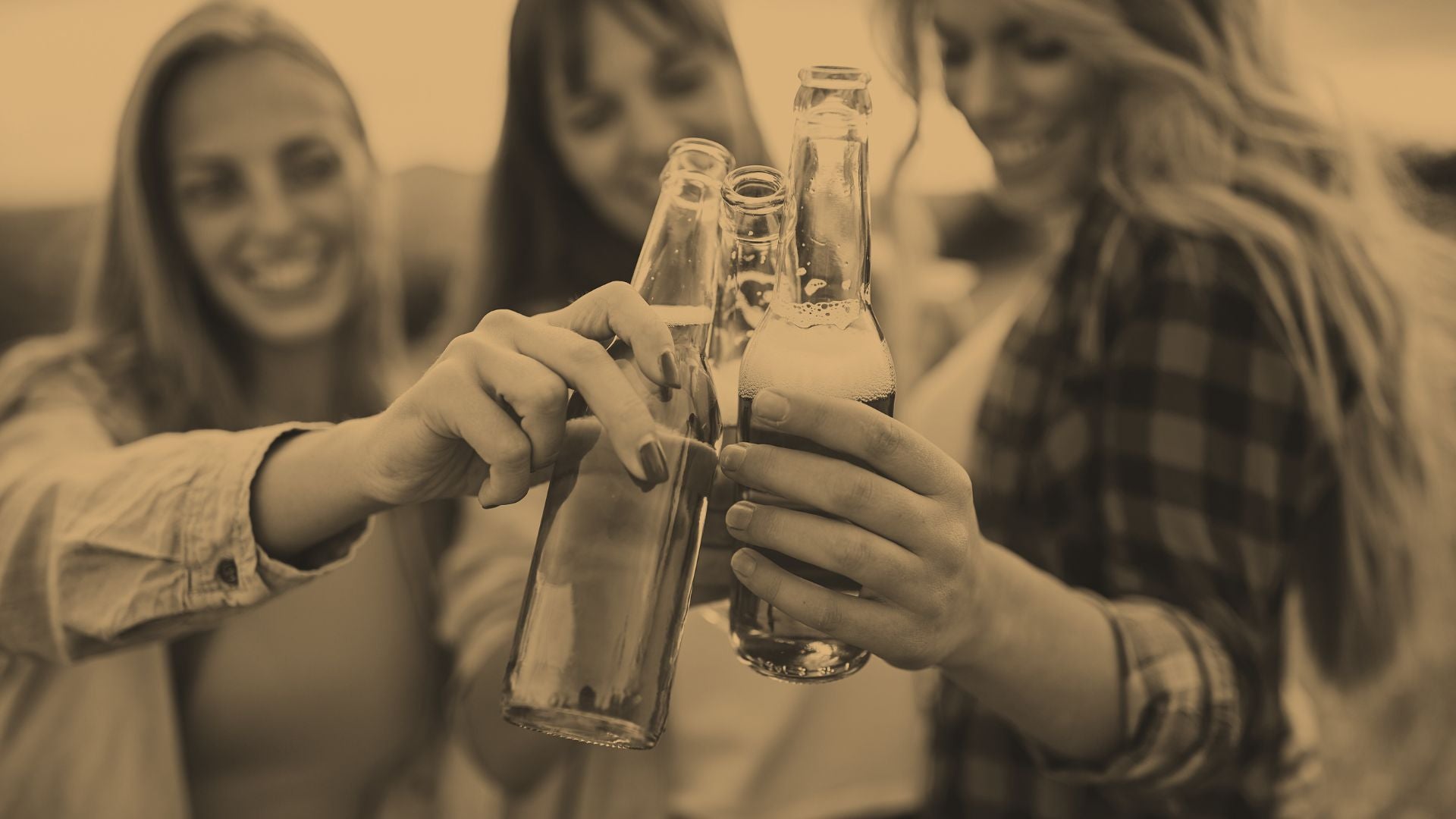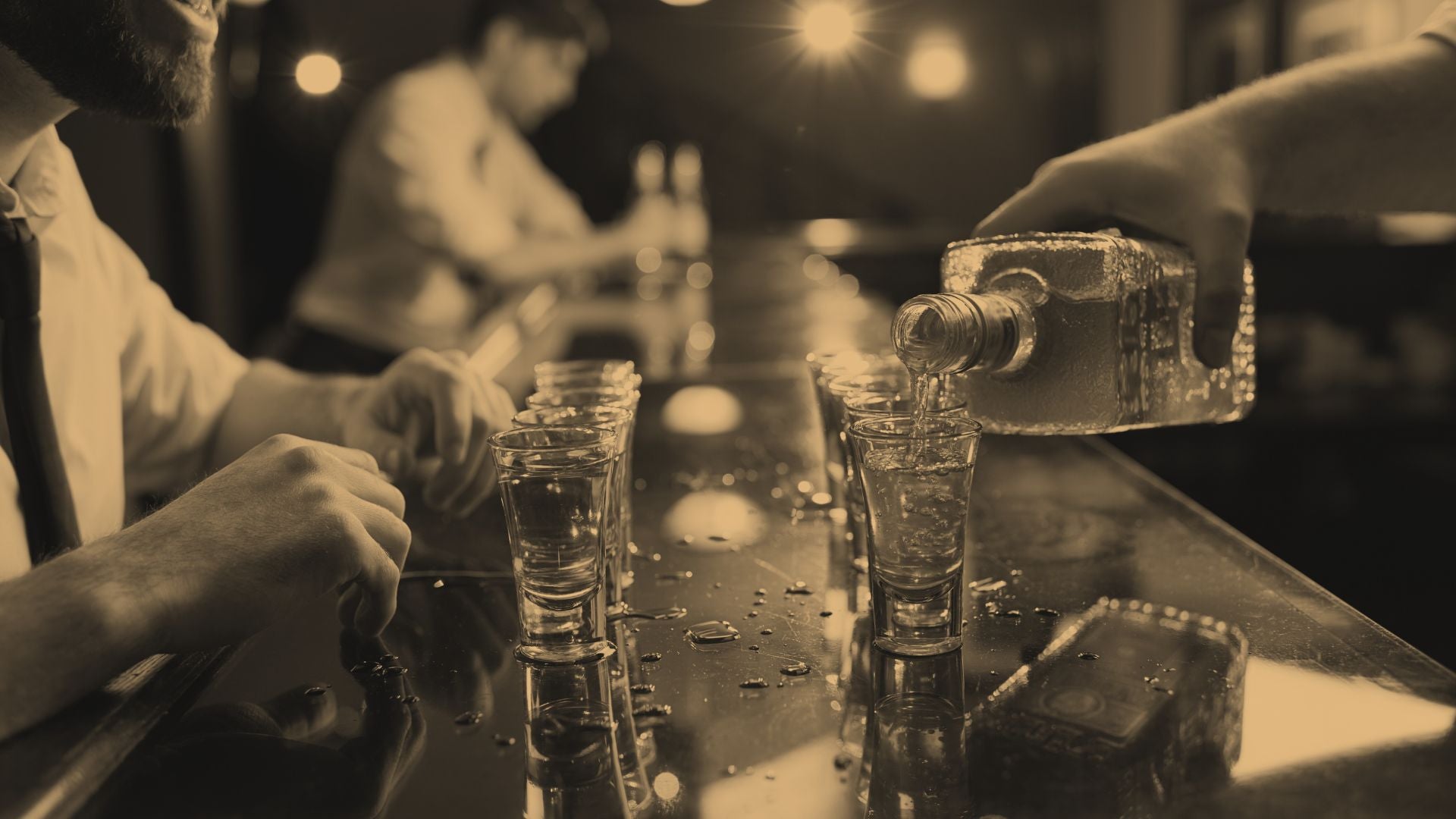
How to Cure a Hangover Fast: Effective Tips for Quick Relief
Let’s say you and your friends had an amazing night last night, making memories to last a lifetime while consuming a few alcoholic beverages. But only when you woke up this morning with a headache, nausea, fatigue, and other debilitating hangover symptoms did you realize that you drank a few too many alcoholic beverages.
We’ll be honest with you: there’s no foolproof cure for a hangover, but there are ways to reduce unpleasant aftereffects of alcohol consumption. By targeting and resolving the physiological causes of hangover symptoms—like dehydration, low blood sugar, and other physical consequences of alcohol consumption—you can support your body’s ability to bounce back and even feel better sooner.
What IS a Hangover?
Before we get into the best methods for relieving hangovers, let’s define what a hangover actually is—because understanding the biological basis for these often horrible symptoms can empower us to relieve them more effectively.
Physical symptoms of a hangover can include fatigue, weakness, thirst, nausea, headache, muscle aches, upset stomach, vertigo, light and sound sensitivity, shaking, sweating, and elevated blood pressure. Psychological hangover symptoms are less widely discussed, but they’re by no means insignificant: anxiety, irritability, and depression are some of the mental effects that many people experience.
But why does drinking alcohol lead to these symptoms the following morning? It’s a combination of dehydration, poor sleep quality, systemic inflammation, irritation of the gastrointestinal lining, exposure to toxins like acetaldehyde, and slight withdrawal from the alcohol itself.
How To Reduce Hangover Symptoms
No, we’re not promising a foolproof cure (that’s impossible), but here’s some of the best advice that medical science has to offer when it comes to feeling better after drinking:
Take some preventive measures before/during drinking
You’re probably reading this post when the alcohol has already worn off and you’re experiencing its aftereffects, but for future reference, there are some ways you can reduce your hangover symptoms and still enjoy social drinking:
- Drink moderately: As you might have guessed, the amount of alcohol you consume affects the severity of hangovers—more alcohol means worse hangovers. In particular, keeping your blood alcohol levels below 0.06 can lower hangover risk.
- Avoid congeners: These are toxic compounds (like methanol and acetone) that can make hangovers worse. They’re found in high concentrations in darker drinks like red wine, bourbon, cognac, and whiskey, while lighter/clear drinks (like gin and vodka) tend to contain fewer congeners.
- Stay hydrated: Alcohol is a diuretic that often causes dehydration, so drinking a glass of water (or of another non-alcoholic beverage, like coconut water or sports drinks) between each alcoholic drink is a great idea.
- Take Capsulyte’s PREGAME supplement in advance: PREGAME contains NAC, which may reduce negative post-drinking feelings; DHM, an anti-inflammatory and antioxidant; Clovinol®, which can reduce negative feelings after drinking by 55 percent; and Siliphos®, a compound that comes from milk thistle and may lower your risk of alcohol-related cirrhosis.
If you follow this advice before drinking, you may find that your next hangover is much less severe (or even nonexistent!).
Get and stay hydrated
Not only should you emphasize hydration while drinking, but also while dealing with a hangover, since dehydration worsens hangover symptoms.
You can drink water, broth, smoothies, or electrolyte beverages, or you can go for a supplement like Capsulyte’s HYDRATION, which contains:
- Hydra 4G™, a perfectly balanced blend of sodium, potassium, magnesium, and calcium
- B vitamins, which may help to regulate energy metabolism and neurological function
- Zinc, an essential mineral for immune function and more
- Liposomal Pureway C™, an antioxidant that may also support immune function
One study even found that diets higher in zinc and B vitamins—which are both included as part of HYDRATION—can reduce the likelihood of hangover symptoms.
Consume bland carbs to raise blood sugar levels
Alcohol can lower your blood sugar levels, worsening hangover fatigue, headaches, and more. But while dealing with nausea and an upset stomach, you want to keep your diet as bland as possible. That’s why bland carbs like toast are often the best choice in this situation.
Take an NSAID, not acetaminophen
Taking a pain reliever can alleviate the headache and body aches that can come with hangovers, but make sure you choose a non-steroidal anti-inflammatory drug (NSAID) like ibuprofen. Avoid acetaminophen (brand name Tylenol) because combining this drug with alcohol can increase your chances of experiencing liver damage.
Get plenty of sleep
Sleep is essential for the body’s process of recovering from any stress, including the stress of alcohol consumption. Especially because being under the influence of alcohol can disrupt sleep, making sure to get enough sleep while recovering from a hangover can help you get back to normal that much sooner.
Looking for more advice on managing the negative aftereffects of alcohol and related topics? Visit the Capsulyte blog for regular updates!


